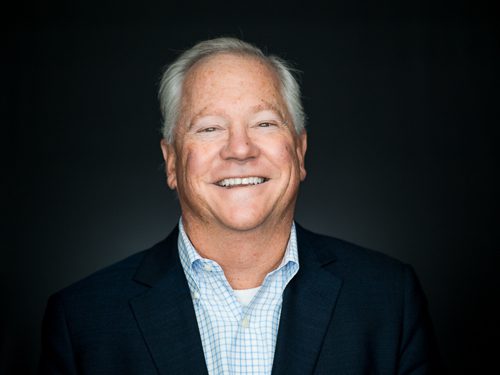
Chris Garcia, CEO of Remedy Partners, got his first taste of running a company in the 1990s when he ran a company focused on managing care for work-related injuries on behalf of property and casualty insurers. After selling that business in the early 2000s, he spent the next eight years working in private equity at Charterhouse Group, leading investments into healthcare services firms. Throughout this time, the itch to run a company never left.
“I realized that I really enjoyed operating. When you’re investing in businesses, even if you’re on the board or you’re executive chairman, you actually don’t get to pull the strings every day. And I found that I really enjoyed doing that,” he says.
That’s when he ran into Steve Wiggins, founder of Remedy Partners, which provides software and services to support bundled payment stakeholders, such as payers, employers, and at-risk providers. After a decade of healthcare investments, Garcia said he felt the idea for Remedy was truly fresh and different from what he seen. “You can invest in only so many home health businesses, so many population health businesses, so many pharmaceutical management businesses, radiology management businesses, etc. This was a truly brand new idea.”
The only problem? His private equity firm couldn’t justify an investment because at the time, in 2012, it was too early stage. Thus, he left the private equity firm, helped Wiggins raise money for the first round of investments, and became its CEO. Garcia spoke to Chief Executive about his accomplishments as CEO of Remedy, the challenges facing him in a complicated healthcare industry, and more. Below are excerpts from this interview.
Talk to me about what you’ve accomplished at Remedy.
I started it from scratch with Steve. Before I got here, there were a few guys sort of floating around, but once we raised the capital we were actually able to hire people and really go after this bundled payment opportunity that the government had presented the market. And five and a half years later, we’ve got just under 400 employees, three offices, and we cover almost every state in the Union, there maybe two or three that we haven’t quite covered yet.
They call us a convener, [as] we stand between providers and the government, helping them participate in [bundled payment] programs together. And we became the largest convener over that period of time, managing over half of the current [Medicare Bundled Payments for Care Improvement (BPCI)]. We manage about half of that program as it exists today, and we have a very large subscription for the successor program which starts on October 1st of this year.
And then we’ve taken [our successes from the Medicare program] and we’re now beginning to implement bundled payment strategies in the commercial space… commercial insurers with this traditional insurance population are starting to talk about wanting to explore bundled payments and how they can reduce costs and improve outcomes. Self-insured employers want to talk about it too.
What opportunities do you see with the changing reimbursement models that are taking place in healthcare?
Well, I think that the healthcare world has sort of thrived around fee for service, right? And fee for service sort of drives that idea about volume. If you cut my rate, I’ll treat you more. Now the conversation has begun to shift to utilization. It’s not like it hasn’t been thought up before, it’s just we’re finally getting around to reforming how we pay for things. The interesting impact is from a financial aspect, is it sort of putting the patient back in the center.
“…the nuances of this business are quite significant. It’s hard. It’s hard what we do.”
The patient has kind of been removed from the center of the equation and it was all about reimbursement and how [you] manipulate the system and get the most financial reward. And now, if you’re paying for value, if you’re paying for outcomes, all of a sudden, the patient comes back in the middle and you are concerned about what that patient has to say and what that patient is experiencing. Because at the end of the day, if that patient doesn’t believe they had a positive outcome, that is going to hurt the providers in terms of their reimbursement. So, there’s sort of objective and subjective outcomes, and both of those will matter in this new reimbursement scheme.
Historically, providers very often treated to the benefit rather than treating to the condition…hospitals typically didn’t know what happened when a patient left their four walls…they didn’t know that if you look at the spending of a patient during a 90-day episode of care, only one-third of the spending is being done in the hospital. And then when you explain to them the impact that their decisions have on that two-thirds of the spending, the majority of the market said, “Well, we can do better. We have to do better.”
When you hold a hospital accountable and you hold its reimbursement in purgatory, if you will, until there is an improved patient outcome, now the hospital has a different financial incentive. Now they actually care about where that patient goes and how much care that patient receives when they leave the hospital. Those are really important sea changes in healthcare that haven’t or they’ve been talked about a lot, but we’ve never found a mechanism to make them happen until now.







